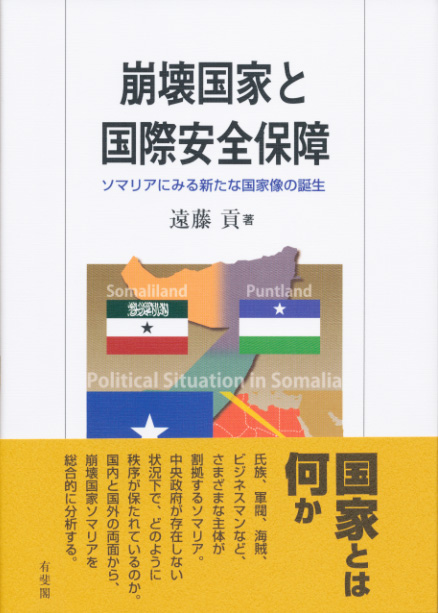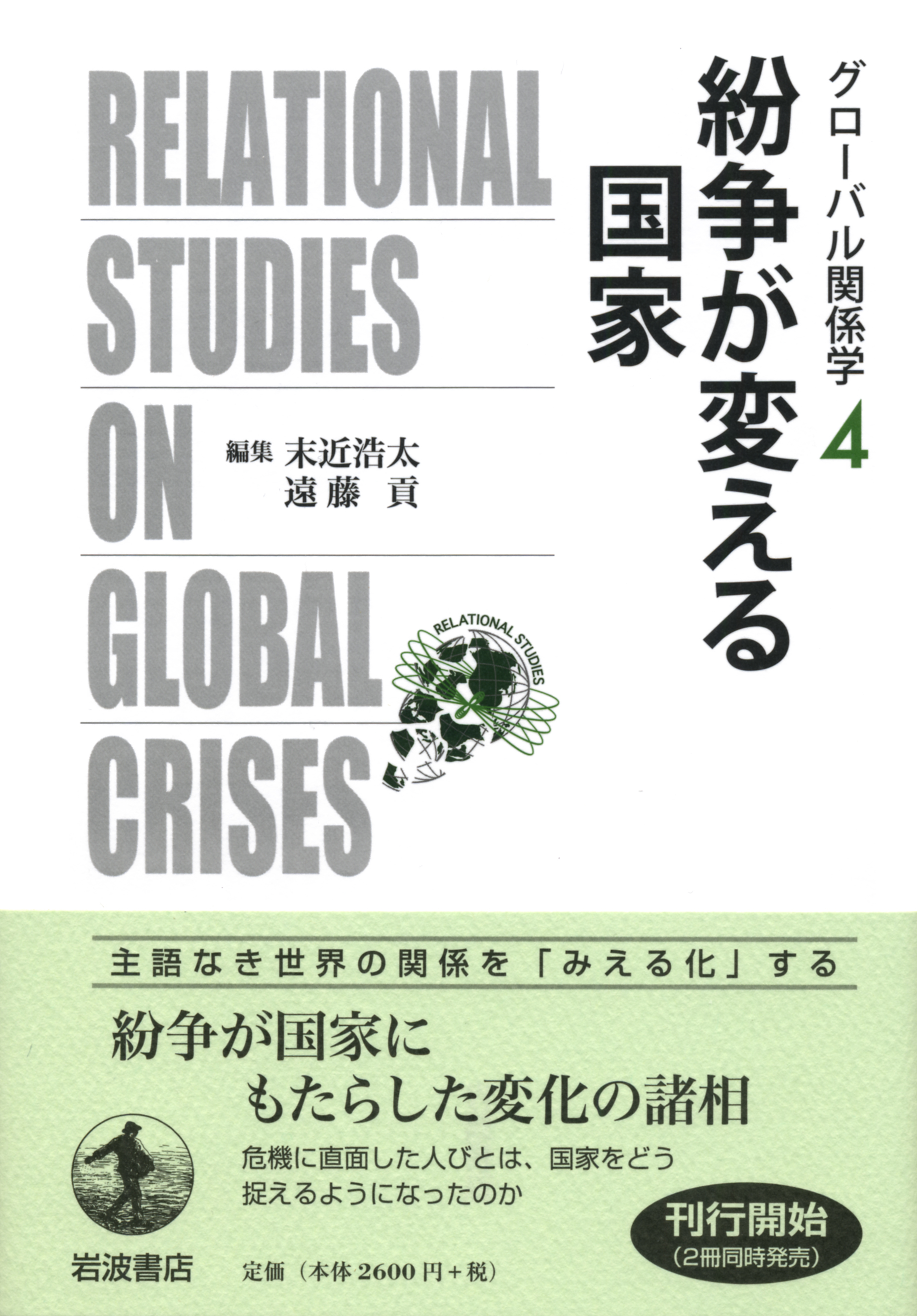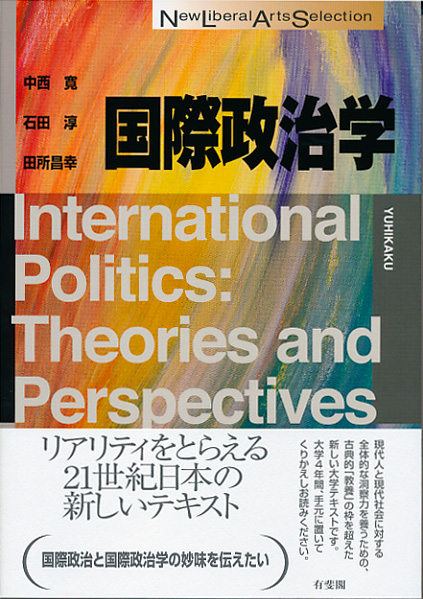
Title
Hokaikokka to Kokusaianzenhosho (Collapsed states and International Security: Experiences of Somalia and New Sovereign Statehood)
Size
294 pages, A5 format, hardcover
Language
Japanese
Released
November 20, 2015
ISBN
978-4-641-14913-7
Published by
Yuhikaku Publishing Co., Ltd.
Book Info
See Book Availability at Library
Japanese Page
By defining the status of Somalia as a collapsed state, this book aims to recapture various phenomena that are taking place there and reveal diverse forms of independence in terms of international relations of the 21st century, along with dynamics of power in and out of the country. In so doing, special attention was paid to ensure that the book does not focus on separate regions such as Somaliland or Puntland where a certain degree of “statehood was attained through negotiations” and relatively independent governments were formed. Instead, the discussion that takes account of Somalia as a nation (as a whole/or in its entirety) is important, where such movements are observed as a premise, and to identify the issues addressed in each chapter as being organically linked. The book confirms various phenomena that are taking place in Somalia are brought about under extremely complex circumstances in which internal and external (factors?) are interconnected and examines if these phenomena have been created in a space backed by the “synchrony” of modern international relations.
Part I discusses the emergence and sustainability of Somalia, and various aspects of state functioning as a collapsed state, and then derives the possibility of being independent in diverse forms that constitute modern international relations. In terms of the degree of becoming a “state” and that of creating a “government” as categorized in this book, the book reveals diverse forms of statehood and identifies some constraints on achieving a sovereign state of an ideal type by taking examples of Somalia as discussed in this book. Part II, with the main focus on Somaliland in the northwestern region and Puntland in the northeastern region as well as on Islamist movements in the central and southern regions, discusses spontaneous creations of governing systems in each region and raises various related issues. Part III examines the relationship between the collapsed state and the international society and identifies “pirates” and “diaspora” as two problem areas. With the collapsed state having insufficient control over its territorial waters, the book re-examines, from the historical context of Somalia, the issue of “pirates” off the coast of Somalia, which has become a serious international security issue.
While Somalia is partially successful in establishing regional orders in separate local communities, there is no prospect of coming closer to a sovereign state (nation state) of an ideal type. It is also presumed that, contrary to the creation of (anticipated) stable international orders, an attempt to realize nation building involving external factors while ignoring various local conditions in Somalia is reclaimed by the framework of re-“negotiating statehood,” resulting in the creation of dynamism, whereby an attempt is being made to bring about new (and completely unintentional) independent political orders and economic benefits in Somalia. In this sense, we may have to understand the fact that a state that is similar to a form of a collapsed state has emerged apparently as one type of state in the 21st century.
(Written by ENDO Mitsugi, Professor, Graduate School of Arts and Sciences / 2017)



 Find a book
Find a book


 eBook
eBook

